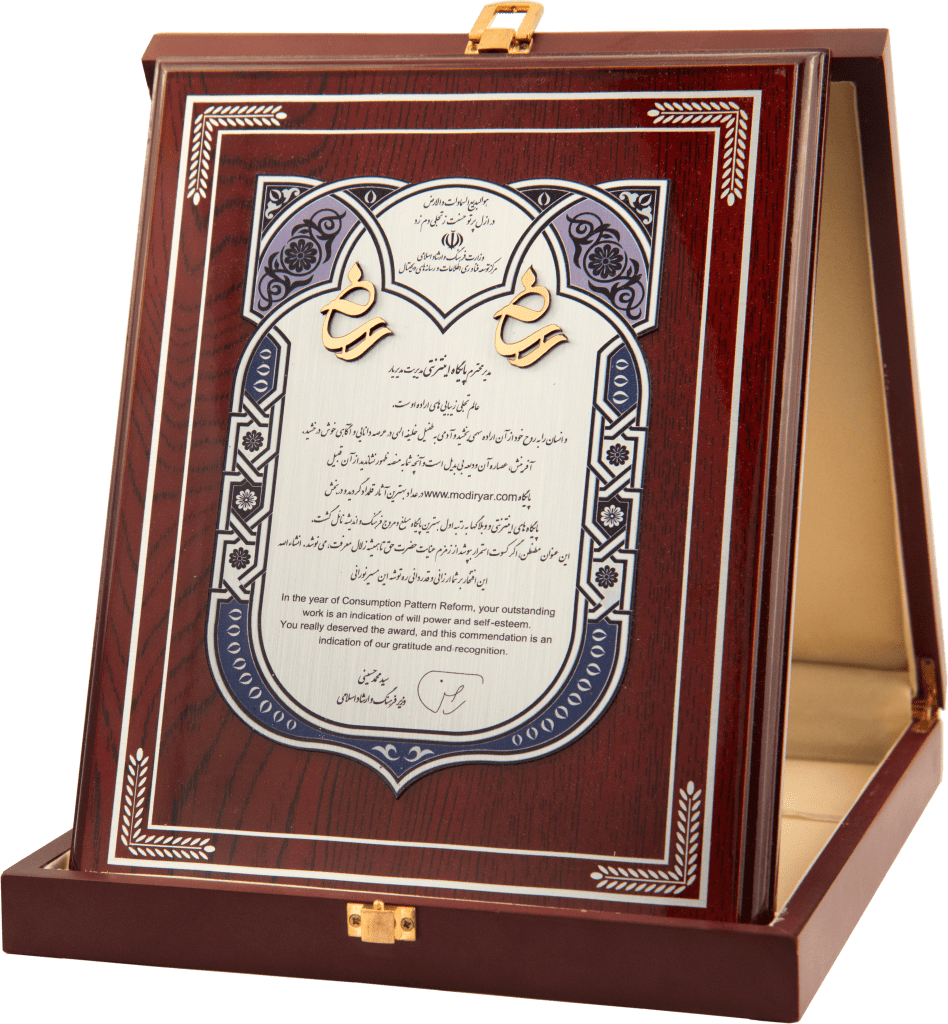تحقيق، کوششی روشمند برای پاسخگويی به مسألههای علمی است
معناي لغوي تحقيق
همة شما با معني كلمة تحقيق آشناييد و بارها آن را به كار برده و يا شنيدهايد.
گاهي ميگوييم:
باورهاي ديني خود را بايد با تحقيق به دست آوريم و تقليد كردن در اصول دين جايز نيست.
وقتي ديگر ميگوييم:
در هنگام پاسخگويي به تقاضاي ازدواج، بايد در مورد شخصيت و خانوادة متقاضي تحقيق كرد.
گاهي نيز ادعا ميكنيم:
ميزان پيشرفت هر كشور، وابسته به ميزان تحقيق در آن كشور است.
در همة اين جملات، كلمة تحقيق را به كار بردهايم. اين كلمه، مانند كلمة «حق» از ريشة «ح ق ق» است. اين ريشه به معني ثابت، استوار و مطابق با واقع است. بنا بر اين، «تحقيق» در لغت، به معني كشف حقيقت و رسيدن به كنه يك امر است.
آنچه در همة اين جملات مشترك است، روند دستيابي به يك حقيقت و پاسخگويي به پرسشي در زمينة امري مجهول است. اما با وجود اين اشتراك، به نظر شما، آيا كلمة تحقيق در سه جملة بالا دقيقا به يك معني است؟ بيشك پاسخ منفي است. در جملة اول، منظور از تحقيق، يافتن اعتقاد صحيح، با استفاده از استدلال عقلي و منطقي است. تحقيق در جملة دوم، به معني بررسي و پرس و جو دربارة ويژگيها و سوابق يك فرد است. تحقيق در جملة سوم به معني تحقيق علمي است. همان موضوعي كه در اين مباحث ميخواهيم دربارة آن صحبت كنيم.
آيا ميدانيد با وجود يكسان بودن معني لغوي كلمه، علت اين اختلاف چيست؟ اين اختلاف معني از آنجا ناشي ميشود كه بسياري از كلمات، علاوه بر معناي لغوي، معنايي اصطلاحي نيز دارند. منظور از معناي اصطلاحي، معنايي است كه با به كار رفتن كلمه در مباحث مربوط به يك علم و يا در محيطي خاص، بر اثر قرارداد و يا كاربرد فراوان، براي يك كلمه پيدا ميشود و از آن پس، هر گاه آن كلمه در آن رشتة علمي و يا محيط خاص به كار رود، معناي جديد، مورد نظر خواهد بود؛ نه معناي لغوي. البته معمولا ميان معناي اصطلاحي و معناي لغوي، نوعي ارتباط وجود دارد.
يك نمونه از كاربرد كلمة تحقيق در معناي لغوي آن:
پاسخگوئی به پرسشهاي مختلفي که در طول روز با آنها مواجه هستيد _ چه علمی و چه غير علمی _ ميتواند از نظر لغوي يك تحقيق شمرده شود.
مثلا برای خريد ماهی به ماهیفروشی میرويد و برای اطمينان از سالم بودن جنس، آزمايشهايی را روی آن انجام میدهيد .به عنوان مثال، انگشت خود را با فشار روی پوست ماهی قرار میدهيد. پس از چند ثانيه، انگشتتان را برمیداريد. اگر پوست ماهی به حالت اوليه بازگشت، میفهميد که ماهی تازه است؛ ولی اگر
حالت فرورفتگی روی آن باقی ماند، از خريد ماهی صرف نظر میکنيد.
همين آزمايش ساده را ميتوان از نظر لغوي تحقيق ناميد. زيرا اين كار برای کشف اين حقيقت است که آيا ماهی سالم است يا نه؟
اكنون اين پرسش مطرح است كه منظور ما از كلمة تحقيق در اين مباحث چيست؟ آيا ميتوان هر گونه تلاش براي پاسخگويي به پرسشها و مجهولات را «تحقيق علمي» ناميد؟ و آيا ميتوان به هر كسي كه اطلاعاتي را جمعآوري ميكند و يا پرسشي را پاسخ ميدهد، محقق گفت؟ به عبارت ديگر، تعريف اصطلاحي تحقيق، وقتي در رابطه با مباحث علمي مطرح ميشود چيست؟
اكنون با توجه به تعريفي كه از تحقيق ارائه كردهايد، از ميان گزينههاي زير، مواردي كه طبق تعريف شما تحقيق به حساب ميآيند را علامت بزنيد:
ميخواهيم علل كاهش ميزان بارندگي در سالهاي اخير را بررسي كنيم.
بايد فهرستي از كلية نسخههاي خطي كتاب كافي در همة كتابخانههاي جهان را تهيه كنيم.
سازمان برق منطقه، ميخواهد كلية لامپهاي معابر عمومي شهر را با لامپهاي كممصرف تعويض كند. براي اين كار بايد آمار دقيقي از تعداد آنها تهيه شود.
اين كتاب، داراي متن سنگين و مشكلي است. خوب است متن آن را تصحيح و آمادة استفادة عموم كنيم. براي اين منظور، بايد آن را با نسخههاي خطي تطبيق داده و معني كلية لغات مشكل را در پانوشت كتاب توضيح دهيم.
اگر چه بسياري از دانشمندان، اين حديث را صحيح دانسته اند؛ ولي صحيح و يا جعلي بودن آن، مورد ترديد است. بايد راويان آن را شناسايي و وضعيت آنها را بررسي كنيم.
ميخواهيم مجموعهاي مبسوط فراهم آوريم و در آن، كلية شاعران فارسيگوي و آثار و سبكهاي ادبي آنها را معرفي كنيم.
نگرانيهاي جدي در زمينة گسترش و تعميق باورهاي مذهبي در ميان نسل جوان، ما را بر آن داشته است كه به دنبال شيوههاي مؤثري در اين زمينه باشيم.
همان گونه كه متوجه شديد، همة موارد فوق را نميتوان تحقيق علمي دانست. اگر چه همة آنها از نظر لغوي تحقيق شمرده ميشوند، ولي بسته به تعريفي كه از تحقيق اصطلاحي داشته باشيم، برخي از آنها را نميتوانيم تحقيق علمي بدانيم.. بنا بر اين، لازم است تعريفي دقيق از تحقيق ارائه كنيم تا در قضاوتهاي خود در اين رابطه دچار اشتباه نشويم.
معناي اصطلاحي تحقيق
بسياري از ما گمان ميكنيم كه هر گونه فعاليت و تلاش علمي را ميتوان تحقيق ناميد. فعاليتهايي از قبيل:
تأليف، از ريشة «أ ل ف» به معني پيوند زدن كه اصطلاحا به معني جمعآوري و تنظيم مجموعهاي از مطالب متناسب با يكديگر است.
تصحيح متون، كه معمولا بر روي متون كهن و سنگين علمي انجام ميگيرد و همراه با مقابلة نسخههاي خطي آن متن و شرح و توضيح لغات و عبارات دشوار است.
ترجمه، كه در آن، متني از زباني به زبان ديگر برگردانده ميشود.
تفسير، كه به معني آشكار كردن مراد گوينده و يا نويسنده از يك متن است.
شرح، كه به معني رفع ابهامها و ارائة توضيحات و اطلاعات بيشتر در رابطه با يك متن است.
احياي نسخ، كه شامل، شناسايي، مرمت، بازخواني، مقايسه و ديگر فعاليتهاي لازم براي تبديل كردن يك نسخة خطي به نسخة چاپي و يا قابل استفاده ميباشد.
آزمايش، كه به معني سنجش و بررسي يك متغير در حالات و شرايط گوناگون است.
و بسياري فعاليتهاي ديگر كه با وجود ارزشمند و مفيد بودن، همگي جزو مقدمات و يا بخشهايي از يك تحقيق ميباشند و هيچ يك از آنها را نميتوان تحقيق ناميد. براي روشن شدن معني دقيق تحقيق، خوب است به عنوان مقدمه، ابتدا تفاوت دو واژه را مورد توجه قرار دهيم:
تفاوت سؤال با مسأله
اگر به پرسشها و ابهاماتي كه براي خودمان و يا ديگران مطرح ميشوند دقت كنيم، ميتوانيم آنها را به دو دستة كلي تقسيم نماييم. تفاوت اصلي اين دو گروه، در اين است كه برخي از پرسشهاي ما به خاطر جهالت و بياطلاعي به وجود ميآيند. يعني چون چيزي دربارة يك موضوع نميدانيم، آن را ميپرسيم تا در آن باره اطلاع كسب كنيم. اين گونه پرسشها را اصطلاحا «سؤال» (question) ميناميم. اما برخي از پرسشها هستند كه بر اثر دانايي و اطلاعات قبلي ما ايجاد ميشوند. به عبارت ديگر، تا وقتي دربارة يك موضوع چيزي نميدانيم و يا اصلا به آن موضوع توجه نداريم، پرسشي هم در رابطه با آن به ذهنمان نميرسد؛ ولي همين كه كلية اطلاعات موجود دربارة آن مطلب را به دست آورديم، تازه در تحليلها و مقايسهها و كشف ارتباطات مربوط به آن موضوع، پرسشهاي جديدي برايمان مطرح ميشود. اگر بتوانيم پاسخ اين پرسشها را با پرسيدن از ديگران و يا مطالعه و استفاده از منابع، به دست آوريم، معلوم ميشود كه اين پرسشها نيز بر اثر جهالت ما و يا نقص در اطلاعاتمان ايجاد شده و در واقع، ما «سؤال» داشتهايم. اما اگر پاسخ پرسشهاي جديد ما، نزد هيچ كس و در هيچ جا وجود نداشته باشد، ما با دغدغه و مشكلي مواجه ميشويم كه خودمان بايد به دنبال حل آن باشيم. اين گونه پرسشها را اصطلاحا «مسأله» (problem) ميگوييم.
به عنوان مثال، تا زماني كه كسي به افتادن اشياء به سمت پايين توجه نميكرد، هيچ پرسشي نيز در اين رابطه مطرح نبود. اما _ آن گونه كه مشهور است _ وقتي نيوتون به اين موضوع توجه كرد، و اطلاعات جامع خود را در كنار آن قرار داد، اين پرسش براي او مطرح شد كه چرا يك سيب وقتي از درخت جدا ميشود، به جاي حركت به سمت پايين، به سمتي ديگر حركت نميكند؟ اينجا بود كه يك «مسأله» براي او مطرح شد. مسألهاي كه پاسخ آن را كسي نميدانست و او در هيچ كتاب و منبعي نميتوانست راه حل و پاسخ آن را بيابد. دقيقا در چنين جايي است كه تحقيق و پژوهش، نقش خود را پيدا ميكند.
امروز اگر همان پرسش براي ما مطرح شود، نميتوانيم آن را يك مسأله بدانيم. چون پاسخ آن قبلا داده شده است و براي اطلاع از اين پاسخ، ما نيازمند مطالعه، جمعآوري اطلاعات و يا آموزش ميباشيم. در حالي كه اگر پاسخ پرسش ما در منابع و مراجع موجود نباشد، بايد براي رسيدن به پاسخ، تحقيق كنيم.
با توجه به نكاتي كه گفته شد، هم تفاوت سؤال و مسأله را دانستيم، و هم با تعريف و ويژگيهاي يك تحقيق علمي آشنا شديم.
مطالب فوق را ميتوانيم اين گونه جمعبندي كنيم:
سؤال:
- بر اثر جهل و ندانستن ايجاد ميشود.
- پاسخگويي به آن با رجوع به افراد و يا منابع امكانپذير است.
- مجهولي است كه فرد، پاسخ آن را نميداند.
مسأله:
- بر اثر دانستن كلية اطلاعات موجود در يك زمينه ايجاد ميشود.
- براي يافتن پاسخ آن، مراجعه به افراد و يا منابع ديگر، سودي ندارد.
- مجهولي است كه جامعة علمي به آن نپرداخته است و پاسخ آن را نميداند.
اكنون كه با تفاوت سؤال و مسأله آشنا شديم، ميتوانيم به تعريف خود از تحقيق، نزديكتر شويم. اولين و مهمترين نكتهاي كه در تعريف تحقيق مطرح ميباشد، اين نكته است كه شرط اساسي شكلگيري و آغاز يك تحقيق، مطرح شدن مسأله است. يعني هرگز با داشتن سؤال، نميتوان تحقيقي را آغاز كرد. چرا كه فرآيند پاسخگويي به سؤالها، نوعي آموزش است؛ در حالي كه پژوهش و تحقيق، فرآيند پاسخگويي به مسألههاست.
نكتة ديگري كه از مطالب قبلي به دست ميآوريم، همراه بودن تحقيق با نوآوري است. چرا كه همان گونه كه قبلا گفتيم، مسأله وقتي مطرح ميشود كه با موضوع و پرسشي كاملا جديد مواجه باشيم. اگر شرط شكلگيري تحقيق، مسأله است و شرط مسأله نيز، نو بودن موضوع آن است، پس طبيعتا، هميشه تحقيق با نوآوري و پاسخ به پرسشهايي جديد همراه است. همين نكته است كه اهميت و نقش پژوهش را تا حدودي مشخص ميكند. همراه بودن تحقيق با نوآوري، موجب ميشود كه كاروان علم و دانش، بر اثر تحقيقات علمي حركت و پيشرفت داشته باشد.
بنا بر اين، ميتوانيم در تعريف اصطلاحي تحقيق بگوييم:
تحقيق، کوششی روشمند برای پاسخگويی به مسألههای علمی است که منجر به نوآوری و پيشرفت علم میشود.
*منبع: http://methodology.persianblog.ir/
What is Research?
What is Research?
Everywhere, our knowledge is incomplete and problems are waiting to be solved. We address the void in our knowledge and those unresolved problems by asking relevant questions and seeking answers to them. The role of research is to provide a method for obtaining those answers by inquiringly studying the evidence within the parameters of the scientific method.
The word research is used in everyday speech to cover a broad spectrum of meaning, which makes it a decidedly confusing term for students — especially graduate students — who must learn to use the word in its specialized denotation. Much that students have learned they must suddenly unlearn; many of the false concepts they had previously learned they must discard.
Unfortunately, many students have been taught misconceptions about the nature of research. From elementary school to college, they have heard the word research used loosely and given multiple, misleading meanings. On one hand, the word connotes the finding of an item of information or the making of notes and the writing of a documented paper. On the other hand, it is used for the act of informing oneself about what one does not know or of rummaging through available sources to retrieve a bit of information. Merchandisers use the word to suggest the discovery of a revolutionary product when, often, the truth is that only a minor alteration has been made to an existing product, with the purpose of enhancing the product’s sales appeal. All these activities have been called research but should have been called by their appropriate names: information gathering, library skills, documentation, self-enlightenment, and an attention-getting sales pitch.
The word research has a certain mystique about it. It suggests to many people an activity that is exclusive and removed from everyday life. Researchers are sometimes regarded as esoteric individuals who seclude themselves in laboratories, in scholarly libraries, or within the precincts of an academic environment. The public generally is not aware of their daily activity or of the important contributions their work frequently makes to people’s comfort and general welfare. Many people, therefore, regard research as a way of life dissociated from the common activities of the everyday world.
The purpose of this chapter is to dispel these myths and misconceptions and to present an accurate definition of research. I define research here as the systematic process of collecting and analyzing information (data) in order to increase our understanding of the phenomenon with which we are concerned or interested. Although this conception of research may seem somewhat remote and academic, many people rely on a truncated form of it each day to solve smaller problems than those resolved by the more elaborate methodology of formal research. It is with formal research, however, that we are concerned in this text.
WHAT RESEARCH IS NOT
I have suggested that the word research has been so loosely employed in everyday speech that few people have any idea of its real meaning. Here are a few guidelines as to what research is not; accompanying each guideline is an illustration depicting the popular concept often held about research.
1.Research is not mere information gathering. A fourth-grade child came home from school with this announcement: “Mom, the teacher sent us to the library today to do research, and I learned a lot about Columbus.” This child has been given the idea that research means going to the library to get information or to glean a few facts. This may be information discovery; it may be learning reference skills; but it certainly is not, as the teacher so termed it, research.
2.Research is not mere transportation of facts from one location to another. A student completes a “research paper” on the Dark Lady in the sonnets of William Shakespeare. Although the student did, indeed, go through certain activities associated with formal research — collecting data, assembling a bibliography, referencing statements properly — these activities still do not add up to a true “research” paper. The student missed the essence of research: the interpretation of data. Nowhere in the paper did the student say, in effect. “These facts that I have gathered seem to indicate this about the Dark Lady.” Nowhere did the student draw conclusions or interpret the facts themselves. This student is next door to genuine research; but the mere compilation of facts, presented with reference citations and arranged in a series, no matter how appealingly neat the format, misses genuine research by a hair. A little farther, and this student would have traveled from one world to another: from the world of mere transportation of fact to the world of interpretation of fact. The difference between the two worlds is the distinction between transference of information and genuine research — a distinction that is important to understand.
Unfortunately, many students think that looking up a few facts and transferring them to a written paper with benefit of references constitutes research. Such activity is, of course, more realistically called fact discovery, fact transportation, and / or fact transcription.
3.Research is not merely rummaging for information. The house across the street is for sale. I consider buying it, and so I call my realtor to find out how much my own home would sell for. “I’ll have to do some research,” the realtor says, “to find the fair market value of your property.” What the realtor calls “doing some research” means, of course, going through files of recent sales of properties comparable to mine to see what they have sold for; this will give the realtor an estimate to report to me. This so-called research is little more than rummaging through files to find what the realtor did not know. Rummaging, whether in one’s personal records or in the public or college library. is not research. It is accurately termed an exercise in self-enlightenment.
4.Research is not a catchword used to get attention. The morning mail arrives. I open an envelope and pull out its contents. A statement in boldface type commands attention:
Years of Research Have Produced a New Car Wash!
Give Your Car a Miracle Shine with Soapy Suds!
The phrase “years of research” catches my attention. The product must be good, I reason, because “years of research” have been spent on developing it. I order the product — and what do I get? Dish-washing detergent! No research. merely the clever use of a catch-word that, indeed, fulfilled its purpose: to catch my attention. “Years of research” — what an attention-getting phrase, yet how misleading!
Formal research is entirely different from any of the above activities. I outline its essential nature and characteristics in the following section.
WHAT RESEARCH IS
Research is a process through which we attempt to achieve systematically and with the support of data the answer to a question, the resolution of a problem, or a greater understanding of a phenomenon. This process, which is frequently called research methodology, has eight distinct characteristics:
- Research originates with a question or problem.
- Research requires a clear articulation of a goal.
- Research follows a specific plan of procedure.
- Research usually divides the principal problem into more manageable subproblems.
- Research is guided by the specific research problem, question, or hypothesis.
- Research accepts certain critical assumptions.
- Research requires the collection and interpretation of data in attempting to resolve the problem that initiated the research.
- Research is, by its nature, cyclical; or more exactly, helical.
I discuss each of these characteristics in turn so that you appreciate more fully the precise nature of formal research.








